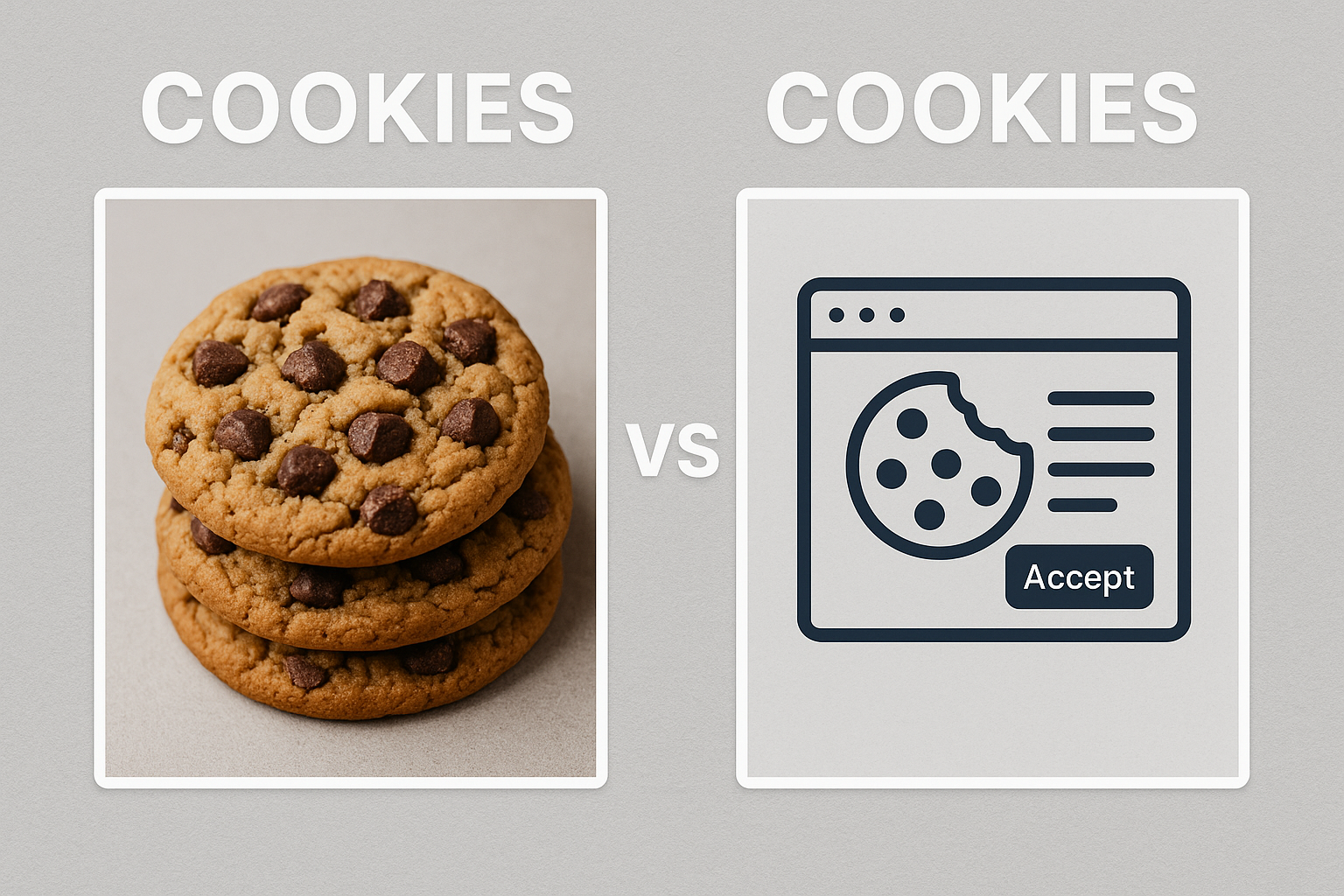What are cookies and why are they important?
April 25, 2025
William
SEO

Cookies are small text files stored on a user’s device when they visit a website.
These files contain data ranging from your username, language preferences, and login status to your activity on the site.
Cookies enable websites to “remember” you between sessions, simplifying your user experience. They’re also used to authenticate users, protect against spam and fraud, and to personalize content and advertising.
How Cookies Work
When you load a page, your browser checks for any cookies the site has stored. If it finds one, it sends its contents back to the server—letting the site recall your previous visits or preferences. Without cookies, every page load would be treated as a brand-new visit, forcing you to re-enter information (e.g. login credentials or form inputs) each time.
Uses of Cookies
-
User Experience
Remembering login details, language and layout settings, and form inputs so that you don’t have to re-enter them on every page or visit. -
Behavioral Analysis
Tracking which pages you visit and how long you stay, helping site owners optimize navigation, content structure, and performance. -
Security & Technical Functions
Managing sessions (so you stay logged in), detecting suspicious activity, and protecting against cross-site request forgery (CSRF) and other attacks.
Types of Cookies
1. Session Cookies
-
Definition: Temporary cookies that exist only while your browser is open.
-
Use Cases:
-
Keeping track of items in a shopping cart during an online purchase.
-
Retaining form entries during a single visit.
-
Maintaining your logged-in state until you close the browser.
-
-
Pros: No long-term data stored on your device.
-
Cons: Limited tracking scope, which reduces privacy concerns.
2. Persistent Cookies
-
Definition: Stored on your device for a set period (months or years) or until you delete them.
-
Use Cases:
-
Remembering “Remember me” login details.
-
Saving language and region settings.
-
Personalizing repeat visits.
-
-
Pros: Enhance convenience and personalization.
-
Cons: Can accumulate data over time, raising privacy issues.
3. Third-Party Cookies
-
Definition: Set by domains other than the one you’re visiting (e.g., ad networks, analytics services, social media widgets).
-
Use Cases:
-
Tracking users across multiple sites to build profiles.
-
Serving targeted ads on various platforms.
-
Measuring ad campaign effectiveness.
-
-
Pros: Enable more relevant content and ad measurement.
-
Cons: Significant privacy risks, often without users’ full awareness; many browsers now block them by default.
4. Functional Cookies
-
Definition: Enable non-essential, yet enhanced, website functions.
-
Use Cases:
-
Remembering chosen language or layout.
-
Enabling live chat features.
-
Saving user-selected preferences.
-
-
Pros: Improve site interactivity without heavy tracking.
-
Cons: May store personal data if misused.
5. Analytical Cookies
-
Definition: Collect information on how visitors interact with a site (pages visited, time spent, entry/exit points).
-
Use Cases:
-
Traffic analysis and trend identification.
-
Spotting technical bottlenecks in user flows.
-
Driving data-led site improvements.
-
-
Pros: Usually anonymized; facilitate performance optimization.
-
Cons: Some analytics tools collect more detail than expected.
6. Marketing (Advertising) Cookies
-
Definition: Build user profiles to deliver ads tailored to interests and past behavior.
-
Use Cases:
-
Retargeting (showing ads for products you viewed).
-
Segmenting audiences by interests.
-
Evaluating campaign ROI.
-
-
Pros: More relevant ads for users; higher marketing ROI.
-
Cons: Extensive profiling can feel intrusive; GDPR/CCPA require explicit consent.
7. Necessary Cookies
-
Definition: Essential for core website functions; cannot be disabled via browser settings.
-
Use Cases:
-
Page navigation.
-
Secure login areas.
-
Payment processing.
-
-
Pros: Fundamental for site operation; do not collect marketing data.
-
Cons: None significant—but always disclose their presence.
Security and Privacy Considerations
While many cookies are vital for a smooth web experience, they can pose privacy risks—especially third-party cookies used by ad networks and analytics providers. Such cookies can map your interests, browsing history, and habits across sites, often without clear user awareness.
How to Protect Yourself:
-
Block third-party cookies in your browser settings.
-
Use privacy-focused browsers or extensions (ad blockers, tracker-blockers).
-
Read each site’s privacy policy to understand cookie usage.
-
Regularly clear stored cookies to limit long-term tracking.
Managing Cookies
You control cookie storage through your browser’s settings menu. You can:
-
Delete existing cookies.
-
Block all or specific cookie types.
-
Allow cookies only from trusted sites.
Additionally, browser extensions (e.g., ad blockers, privacy suites) provide granular control over which data is collected.
Cookie Lifespan
-
Session Cookies: Deleted when you close your browser.
-
Persistent Cookies: Remain until their expiration date (days to years) or manual deletion.
-
Third-Party Cookies: Often long-lived unless removed, used for cross-site tracking.
At any time, you can remove cookies via browser settings to manage what data is stored.
Cookies Beyond Websites
Cookies aren’t limited to web pages. They also operate in apps and email campaigns:
-
Apps: Save user settings and preferences.
-
Email Links: Track when you open or click an email.
Understanding cookies across different environments helps you make informed decisions about your privacy.
Conclusion
Cookies underpin much of today’s online experience—for users and businesses alike. By knowing how they work, recognizing their benefits and risks, and leveraging browser controls or privacy tools, you can enjoy a smoother, more secure web journey while maintaining control over your personal data.
